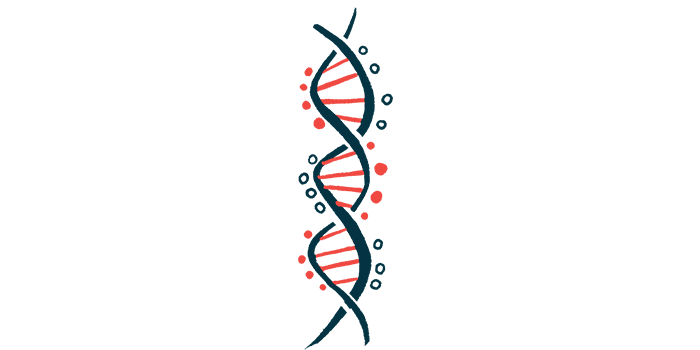Clinical genome sequencing aids in rare genetic disease diagnosis: Study
Testing resulted in a positive diagnosis in 41% of 1K cases assessed
Written by |

Clinical genome sequencing, or cGS, testing to detect a rare genetic disease such as Alagille syndrome, resulted in a positive diagnosis of varying disorders for 41% of the 1,004 cases assessed in a new study — most of them involving children — according to researchers.
Importantly, when compared with individuals from high-income countries, people from lower-income countries were nearly two times more likely to receive a rare disease diagnosis. Because of cGS findings, at least 57% of those from lower-income areas received a new diagnosis, and as many as 78% experienced changes in care.
“We know the value of genetic testing as a first-line test for children with a suspected rare disease, but for lower income populations like ours, the impact on care is especially beneficial,” Alejandra Pena Salguero, MD, executive director of Padrino Children’s Foundation, said in a press release. The foundation, a nonprofit provider of children’s healthcare services in Todos Santos, Mexico, was a participant in the study.
Padrino is part of the iHope Genetic Health (iHope) program, which provides cGS to patients with suspected pediatric-onset rare genetic disease who otherwise lack access to the genetic testing needed for a diagnosis. The current study was based on data collected via the iHope program. cGS refers to a type of genetic testing that involves analyzing all of a person’s genetic material, or genome, for disease-causing mutations.
“Our positive diagnostic rate has been above 60% for the 155 children we have tested, giving families definitive answers and physicians clinical direction,” Salguero said, adding that “for many children, the diagnosis has been life-changing,”
The study, “The impact of clinical genome sequencing in a global population with suspected rare genetic disease,” was published in the American Journal of Human Genetics.
Limited availability of genetic testing outside US and Europe
Most rare genetic diseases lead to symptoms in childhood, “and are associated with high utilization of healthcare services and unfavorable health outcomes,” the researchers wrote.
Alagille syndrome is one such rare disease. Affecting 1 in every 30,000 newborns, nearly all cases are caused by mutations in the JAG1 gene and, more rarely, in the NOTCH2 gene. Such mutations disrupt signaling pathways involved in embryonic development, leading to developmental problems in several organs, including the liver.
Because of the condition’s rarity and its wide range of symptoms, reaching an Alagille diagnosis can be challenging. Physicians may suspect Alagille only after other potential causes have been ruled out. Genetic testing to detect disease-causing mutations in the JAG1 or NOTCH2 genes can confirm an Alagille diagnosis.
“Despite evidence that children diagnosed by cGS are up to twofold more likely to get precision management, there is still limited availability of cGS outside of the US and Europe,” the release stated.
Erin Thorpe, the study’s first author, and director of clinical programs at the nonprofit Genetic Alliance, the coordinating entity of the iHope program, said that “in high income countries patients often remain undiagnosed for an average seven years, but in lower income geographies many families will never know the cause of their child’s suffering.”
Rare genetic disease diagnosis 1.7 times more likely in poorer countries
Here, the team of researchers set out to investigate the usefulness of cGS in populations from high-income countries versus lower-income nations. The team collected data from the 24 clinical sites across eight countries that through the iHope program provide cGS to people with signs or symptoms of a rare genetic disease but don’t have a diagnosis or access to genetic testing.
Overall, 1,004 individuals from diverse ancestral backgrounds underwent cGS from June 2016 to September 2021. The participants had a median age of 6.5 years, and slightly more than half (53.5%) were male.
Most (65.6%) lived in high-income countries (HICs) such as the U.S., while 34.4% lived in low- and middle-income countries — dubbed LMICs — comprising Mexico, Peru, the Democratic Republic of Congo, Ghana, Romania, Brazil, and India.
A total of 416 patients (41.4%) received a positive diagnosis, and, notably, those from LMICs were 1.7 times more likely to receive a positive rare genetic disease test result than were those from HICs (56.5% vs. 33.5%). Inconclusive test results were more frequent in HIC sites (29.5% vs. 19.4%), the researchers noted.
This study is proof that genome sequencing is a viable tool among resource-limited populations. … Over the next five years, in partnership with providers like Padrino, iHope plans to benefit thousands of patients per year and enable in-country capacity building and education, setting a foundation for equitable expansion of genetic testing.
Based on clinical impact surveys completed by providers for 694 patients, cGS led to changes in diagnostic evaluation in 76.9% of cases, and more commonly in LMICs (87.4% vs. 70.1%). Overall, those with a positive test result were about 64 times more likely to have their diagnostic evaluation affected.
cGS findings also changed the clinical diagnosis in 46.9% of cases, which again occurred significantly more often in LMICs (60.2% vs. 39.3%).
A positive test led to changes in care management for about 2 in 5 patients (41.4%). For patients, this led to differences in specialty referrals, imaging and testing, therapeutics, and palliative care. When genetic counseling and avoiding additional testing were included in the analysis, 69.2% of patients experienced a change in care management, the data showed.
Therapeutic changes were endorsed by 72 patients, with similar rates between HIC and LMIC sites (11.9% vs. 13.5%).
“This study is proof that genome sequencing is a viable tool among resource-limited populations,” Thorpe said.
Now, iHope is hoping to soon expand the availability of genetic testing to detect rare disease — including ones that affect the liver, like Alagille — and ultimately provide a diagnosis for more patients.
“Over the next five years, in partnership with providers like Padrino, iHope plans to benefit thousands of patients per year and enable in-country capacity building and education, setting a foundation for equitable expansion of genetic testing,” Thorpe said.


